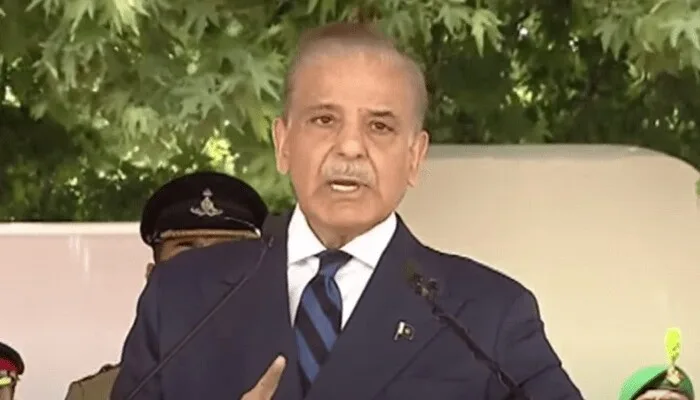
Pakistan’s economic plan, agreed with the International Monetary Fund (IMF), is under strain. Shifting targets, like growth and inflation rates, have prompted Islamabad to seek IMF adjustments on the eve of its first review under the $7 billion Extended Fund Facility (EFF).
Major changes in economic indicators are affecting Pakistan’s fiscal performance. The Federal Board of Revenue (FBR) expects a tax shortfall of about Rs321 billion for the first half of the fiscal year (July-December). Non-tax revenue may also fall short by Rs100 to Rs200 billion, creating a fiscal gap of Rs500 to Rs600 billion.
To manage debt costs, the government is considering lowering the policy rate by 200 basis points. This reduction could bring it to 15.5% at the next Monetary Policy Committee meeting on November 4, 2024. A further rate cut may happen in December if inflation continues to fall. However, despite these efforts, the debt burden remains high, which may force the government to cut its Public Sector Development Programme (PSDP), revised to Rs1,100 billion from Rs1,250 billion.
Tax and Revenue Shortfalls
In the first quarter (July-September), the FBR recorded a tax shortfall of Rs91 billion, collecting Rs2,563 billion. Sales tax at imports fell short by Rs147 billion. However, income tax exceeded expectations, reaching Rs1,230 billion, higher than the Rs1,098 billion target. The FBR added Rs54 billion from new income tax filers, though 2.9 million of these returns were filed as NIL. Notices were sent to 5,000 of 190,000 potential tax evaders, with assessments expected to bring in Rs50 to Rs60 billion.
Policy Actions and Future Challenges
The government is preparing an ordinance to strengthen enforcement, helping the FBR pursue tax evaders. Dr. Khaqan Najeeb, a former finance adviser, emphasized that a 3.2% growth target by 2024-25 depends on raising Pakistan’s tax-to-GDP ratio. The IMF projects an increase of 1.8% of GDP by FY25, which would require a 39% rise in tax collection despite only 12.7% nominal growth.
The FBR’s 25% revenue growth in the first quarter still missed IMF targets by 5%, indicating a need for faster revenue growth. Stabilizing Pakistan’s economy remains a top priority, though weak agricultural performance may challenge growth projections.
While FBR revenues grew by 25% in the first quarter, they fell 5% short of IMF targets, indicating a need for accelerated revenue growth in the coming months. The IMF’s focus on stabilizing Pakistan’s economy remains a priority, with attention on deficits and fiscal health, though weak agricultural performance may further strain growth targets.
Follow us on Google News, Instagram, YouTube, Facebook,Whats App, and TikTok for latest updates












